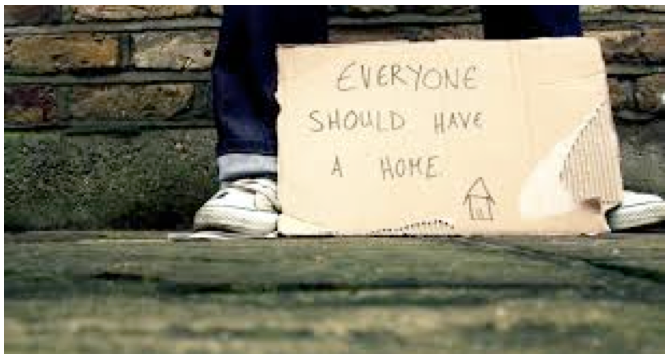CommentsGUEST WORDS--When looking at the City of Los Angeles’ proposed $1.2 billion bond for homeless housing, residents should look past the obvious question of whether this will really get the 27,000 people living on our sidewalks into housing. Instead they should focus on more fundamental questions:
Is this the City’s responsibility?
Is a new tax really needed?
Will the tax burden be spread fairly?
Is an adequate process in place to avoid mismanagement and corruption?
The answer to all four questions is: No.
Counties* in California - not cities - are the government entities responsible for taking care of mentally incompetent, poor, indigent and incapacitated persons. Yet the County of Los Angeles only provides $221 per month in general relief (which jumps to a grant of $877 from Social Security if a person is totally disabled). As an old saying goes, the only problem with poor people is that they don’t have any money. If the County had regularly indexed the $221 figure to account for decades of inflation, a significant number of the homeless would be able to afford to live in shared apartments and houses.
In the face of the County shirking its duty, the goodhearted folks at City Hall have volunteered to help – as long as someone else pays for it.
Before residents let the City Hall again put its hand into their pocket they might consider that the City Administrative Officer projects that the budget will grow from $5.55 billion to $6.20 billion in just the next four years, about $650 million in new revenues each year by 2020. If the City simply committed 10% of the budget increase over the next twenty years it could easily pay off the $63 million needed each year to service the bond without a tax increase.
If it is adopted in November, the bond’s tax burden will fall unevenly, with most of the cost being covered by those who have more recently purchased property, whether houses and condos, apartments, or commercial and industrial buildings. This is due to the operation of Proposition 13 which reassesses properties to market value upon sale (or new construction). Renters – including those who are quite wealthy - will pay nothing, and those who have owned their property since 1978, when Proposition 13 passed, will pay very little.
While City officials say the average yearly increase would be $44.31 per year for a home assessed at $327,900, the current median in Los Angeles, the tax on the Westside and elsewhere with more expensive real estate will be far higher.
My duplex, purchased in 1989, is assessed at about $800,000. So, I would pay an average over the expected 28 year life of the bond of about $106 a year (on top of the $1,470 I already pay each year to retire school and community college construction bonds.) However, a new buyer of my property, at about a $3.5 million sales price, would pay an average of $473 per year, with a spike in the 11th year to about $800 when all the bonds will have been sold.
These effects play out much differently between apartments and commercial property. The City’s rent control ordinance does not allow apartment owners to pass on property tax increases to renters, so apartment owners will have to absorb all the increase. But commercial property is frequently under a triple net lease, which requires the lessee to pay the property taxes, so lots of mom-and-pop businesses will have to pick up the bill.
With more than a billion dollars at play, the potential is high for mismanagement, favoritism and corruption. However, the oversight committee designed by the City Council has the foxes guarding the hen house. Four are appointed by the Mayor, three by the City Council and there are no qualifications required - such as 10 years or more of multi-million dollar construction management experience or being a certified public accountant. There also is no funding for the committee to hire independent staff or retain experts. Nothing in the bond ordinance prevents the appointment of political cronies or individuals from the affordable housing industry who have a financial interest in which projects are funded.
This all suggests the County, with funding from Sacramento, should finally step up and assume its legal requirement to take care of the homeless. If the City still feels it wants to help, it can fund a housing bond from future revenues. Even without a new tax, strengthening the independence and qualifications of the oversight committee would be prudent.
*WELFARE AND INSTITUTIONS CODE SECTION 17000
Every county and every city and county (i.e.; San Francisco) shall relieve and support all incompetent, poor, indigent persons, and those incapacitated by age, disease, or accident, lawfully resident therein, when such persons are not supported and relieved by their relatives or friends, by their own means, or by state hospitals or other state or private institutions.
(Mark Ryavec is the former Chief Deputy Assessor for Los Angeles County and now serves as president of the non-profit Venice Stakeholders Association.)
-cw
Explore
Our mission is to promote and facilitate civic engagement and neighborhood empowerment, and to hold area government and its politicians accountable.

 CityWatch Los Angeles
Politics. Perspective. Participation.
CityWatch Los Angeles
Politics. Perspective. Participation.
27
Sun, Apr















